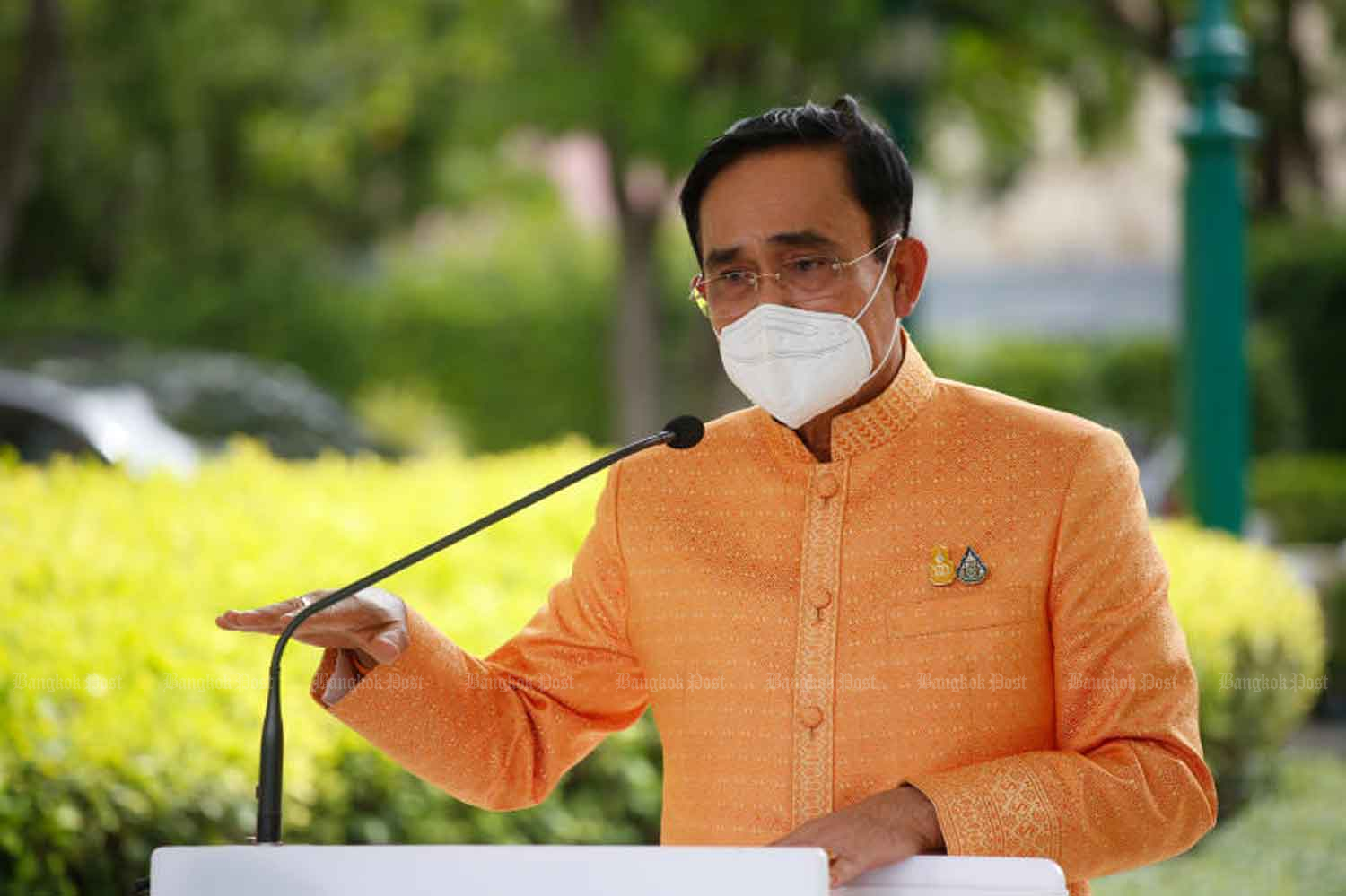
Prime Minister Prayut Chan-o-cha called on the central bank to maintain its policy interest rate on Tuesday to curb a capital flight and support the domestic economy.
Gen Prayut also vented his growing concern over a surge in the inflation rate after headline inflation, gauged by the consumer price index (CPI), hit a 13-year high in May, largely attributed to the rise in energy and food prices.
The Trade Policy and Strategy Office reported on Monday headline inflation rose 7.1% in May year-on-year, accelerating from 4.7% in April.
Major contributors included increasing demand following the economic recovery, tight supply, and trade and economic sanctions against Russia, all of which combined to cause a supplydemand imbalance.
Core CPI, which excludes raw food and energy prices, rose 2.28% year-on-year in May, up from 2% in April.
In the first five months of 2022, headline inflation rose 5.19% from the corresponding period of 2021, with core inflation increasing 1.72%.
Gen Prayut said the inflation rate is likely to climb further because of a continuing rise in energy prices and consumer goods prices, especially for fresh foods and prepared foods, attributed to high production costs.
“The Bank of Thailand and the Finance Ministry are believed to be closely monitoring inflation because the rates play an important role in Thailand’s economic prospects,” he said. “The government pledges to roll out additional measures to reduce the cost of living for people within this month.”
The government will also try to stimulate the tourism industry to generate income for the country, said Gen Prayut.
The central bank’s Monetary Policy Committee is scheduled to review policy rates on Wednesday.
In a related development, the cabinet on Tuesday approved the removal of the fee for 30-day visas for visitors from Saudi Arabia.
The Tourism Authority of Thailand projects 100,000 to 150,000 Saudi visitors to Thailand this year, up from an average of 30,000 in previous years.







